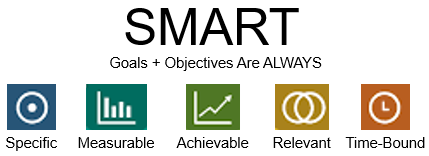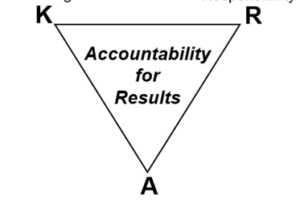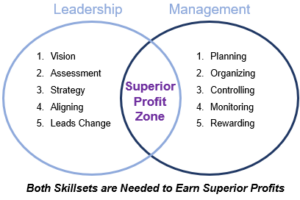
Synopsis
The right coach will help you discuss the vital things you need to accomplish to achieve your goals by helping you to hold yourself accountable. This is a key step to your improving your effectiveness. An effective coach gets this, and as a result, they can help realize your goals, dreams, and aspirations.
At some point, everyone gets stuck or needs help finding a new direction. Just like a sports coach, a personal, business, or executive coach can see things from the sidelines that you cannot, and that perspective is key in advancing your career or your business.
The best business coaches share the following qualities:
- Has a track record for getting results based on an array of education, and corporate and small business experience.
- Specializes in specific problem areas even if they have a lot of breadth and depth of experience. The specialization is developed from their personal strengths and passions.
- Has been in business themselves before becoming the owner of their own business coaching business.
- Is a member of a respected coaching association like the Worldwide Association of Business Coaches(WABC), or the International Coach Federation (ICF).
- Is honest reliable, dependable, and behaves professionally with integrity. As a result, you respect and trust them to protect your interests and keep your confidence through discretion by never sharing information about you.
- Holds themselves accountable for delivering on their commitments and promises, so they are in a position to help you be accountable for your actions.
- Is coaching other business owners and leaders that are succeeding and as a result, can connect you with new business opportunities.
- Demonstrates their knowledge of business in a way that makes sense to you through the way they communicate.
- Has a wide variety of educational and instructional resources that they willingly share with you.
- Believes in you, is on your side, and wants you to succeed. You know this because they help hold you accountable for creating the change you want then celebrates and is proud of your successes when you make the breakthroughs.
Some of the personality traits that you want your business coach to have are as follows:
- High Achievement Drive – the drive to achieve and accomplish great things.
- High Desire to Contribute – the need to lead, influence the outcome, and make things happen.
- High Self-Confidence – the tendency to think very highly of their own capabilities, decisions, and views.
- High Critical Thinking – the tendency to critique their performance and behavior.
- High Passion with Purpose – the focus to do what matters most.
- Low Self-Critical – the tendency to resist beating up, blaming, or finding fault with themselves.
- Low Willingness to Defer – the tendency to resist the opinions and preferences of others in favor of their own.
Just as it’s important to know what to look for in an effective business coach, sometimes it’s easier to recognize what you don’t want. Below are three shortcomings that you don’t want in your business coach:
- The Pushover. You don’t want a coach who has difficulty persuading, convincing and winning others over to their point of view. If the coach you are considering has difficulty persuading you or are is unable to present themselves credible, overcome objections to their services, and answer your concerns about their coaching process then watch out.
Pushover coaching engagements fail because the business owner doesn’t change fast enough to generate the kind of increases in profitability and cash-flow that constitute healthy ROI on the cost of coaching.
The personality traits indicating the likelihood you are talking with a “pushover” coach is the combination of low competitiveness and high willingness to defer.
- The Softie. Coaches who lack experience typically start off here because they have difficulty evaluating and critiquing the work of others and carrying out crucial confrontations. The other downside of being coached by a “softie” is they have difficulty creating an environment of discipline and accountability around the coaching process. Also, the Softie is hesitant to present correction plans that confront the status quo.
You know you are dealing with an effective coach when they confidently show you exactly where the gaps are in your technical abilities and managerial practices during the planning phase. If they help you see the connection between your deficiencies and your poor business results than you are talking to someone who can help you.
Coaches with difficulty evaluating and critiquing the work of others do not point out these deficiencies. As a result, their prospects don’t see that they need business coaching to correct their challenges. What’s more, the Softie will come short in helping you confront the obstacles and fear of change which often stand in the way of creating greater personal effectiveness.
The personality indicating the likelihood you are talking with “softie” coach is a combination of low competitiveness, low critical thinking, and low dominance.
- The Quitter. The worst of the three coaching constraints is difficulty in persevering and following through on commitments in the face of difficulty. You know you aren’t dealing with a “quitter” when they continue to nurture you as a prospect over a long period. Building lasting relationships can be a slow and tedious process. Successful business coaches know they have to push a lot of leads, through a sophisticated, relationship-based, sales funnel to get results. Those who do this well represent your best prospects for working with a great coach.
The problem with a “quitter” is they have a very difficult time handling rejection, often internalizing lost sales opportunities. This leads to a lack of perseverance and follow through on sales efforts — which if you still choose to hire them will most likely lead to lackluster results.
When coaching a client, the Quitter struggles to create an environment of consistent attention to detail. Given that results in business are all about the details, this leads to failed coaching engagements as the business owner fails to make specific changes fast enough.
The personality traits indicating the likelihood you are talking with a “quitter” coach is a combination of low achievement and low perseverance.
Another way to recognize whether you are considering an effective coach or not is to look for the relationship “connection” that is developing between you and your potential coach during your due diligence work. The foundation of great coaching is built on these three principles:
- Coaching is all about having conversations. The Oxford English Dictionary defines a conversation as “a talk, especially an informal one, between two or more people, in which news and ideas are exchanged.” In coaching, a conversation is more like “a meaningful talk with an objective, whereby the coach holds the agenda for the coachee, listens well and asks powerful questions to help the coachee create their desired outcome.”
- Conversations happen between two people. The second point to appreciate is that a conversation happens between two (or more) PEOPLE. The exchange of information through thought-provoking questions, great listening, and insightful observations and insights is how you create a pool of shared meaning and understanding that forms the basis for change and improvement.
- People grow from the connections that come from their conversations. While you can sit, ponder and even talk with yourself, you will struggle to make the connections. This is because connections that lead to new thinking and action doesn’t become cognizant let alone ingrained until they are made with another person. People grow from connections because connections are the wellspring of creativity that more often than not occur inside of a conversation.
The last way to recognize what an effective coach looks like is to think through what the best clients for a business coach are looking for:
- Trouble with accountability because they are pulled in too many competing directions day-in and day-out.
- Problems with growing their revenue or reducing costs
- Difficulty articulating their business concerns in an actionable way.
- Inability to hire and retain more capable employees.
- Poor at projecting themselves to customers, key stakeholders and their business’s community.
Of these pain points, accountability is recognized as the greatest benefit of business coaching. This is because everything gets complex; you get busy and sometimes push off things you know are important while you are heading down trying to grow your business. This is where a business coach comes in.
The right coach will help you discuss the vital things you need to accomplish to achieve your goals by helping you to hold yourself accountable. This is a key step to your improving your effectiveness. An effective coach gets this, and as a result, they can help realize your goals, dreams, and aspirations.
Go to Coaching vs, Consulting vs. Mentoring – which do you need? or business-cpr.com/coach to make your introductory coaching request.
Are you ready for help?
Click the link below if you are ready to improve the effectiveness of your actions and the quality of your results by speaking with a certified BusinessCPR™ Coach to explore how this can happen.
TALK TO A COACH

